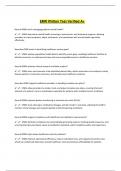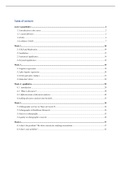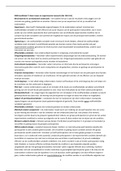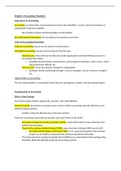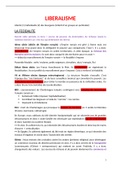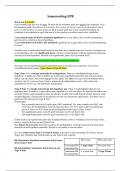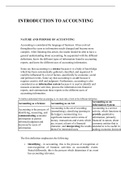How do EMRs aid in managing patient mental health?
✔️✔️ EMRs document mental health screenings, assessments, and treatment progress, allowing
providers to track symptoms, adjust treatments, and coordinate with mental health specialists
effectively.
How does EMR assist in identifying healthcare service gaps?
✔️✔️ EMRs analyze population health data to identify service gaps, enabling healthcare facilities to
allocate resources to underserved areas and ensure equitable access to healthcare services.
How do EMRs enhance clinical research and data analysis?
✔️✔️ EMRs store vast amounts of de-identified patient data, which researchers can analyze to study
disease patterns, treatment outcomes, and develop new healthcare solutions.
How does EMR support healthcare providers in handling complex care plans?
✔️✔️ EMRs allow providers to create, track, and adjust complex care plans, ensuring that each
element of a patient's care is coordinated, especially for patients with multiple chronic conditions.
How do EMRs improve patient monitoring in intensive care units (ICUs)?
✔️✔️ EMRs track vital signs, medication dosages, and lab results in real-time, allowing ICU staff to
monitor critical changes and respond quickly to life-threatening conditions.
How do EMRs support compliance with healthcare accreditation requirements?
✔️✔️ EMRs facilitate compliance by automatically generating reports, tracking quality measures, and
ensuring that documentation meets accreditation standards, which simplifies audits and inspections.
How do EMRs help reduce healthcare costs for patients?
✔️✔️ EMRs improve operational efficiency, reduce redundant tests, and support preventive care,
which can collectively help lower overall healthcare costs and improve affordability for patients.
,How does EMR aid in managing patient consents and treatment preferences?
✔️✔️ EMRs store patient consent forms and documented preferences, making it easy for healthcare
providers to respect patient choices and comply with legal requirements during care.
How do EMRs support medication adherence tracking?
✔️✔️ EMRs track prescription fills and patient follow-up, enabling providers to monitor adherence
and intervene when patients may not be following their prescribed medication regimens.
How does EMR improve healthcare provider communication with pharmacies?
✔️✔️ EMRs allow providers to send prescriptions electronically to pharmacies, reducing delays,
minimizing errors, and ensuring patients receive medications more efficiently.
How do EMRs facilitate tracking of rehabilitation progress?
✔️✔️ EMRs document progress in physical therapy, occupational therapy, and other rehabilitative
services, providing providers with insights to adjust treatment plans based on patient recovery.
How does EMR improve communication between primary and specialty care providers?
✔️✔️ EMRs allow primary and specialty care providers to share patient records seamlessly, ensuring
that all involved providers have access to complete and current information for coordinated care.
How does EMR contribute to efficient lab test result management?
✔️✔️ EMRs provide a streamlined process for ordering, tracking, and retrieving lab results, ensuring
timely communication of results to both patients and providers for quicker treatment decisions.
How do EMRs improve monitoring and management of elderly patients?
✔️✔️ EMRs document age-related health factors and chronic conditions, allowing providers to track
trends in elderly patients and adjust treatments to address their unique health needs.
How do EMRs enhance data integrity and reduce documentation errors?
, ✔️✔️ EMRs use standardized data entry fields and validation checks, reducing errors in
documentation and ensuring that patient records remain accurate and reliable.
How do EMRs support ongoing education for healthcare providers?
✔️✔️ EMRs provide access to updated treatment guidelines, best practices, and resources that help
healthcare providers stay informed about advancements in medicine and patient care.
How does EMR facilitate patient access to medical histories in emergencies?
✔️✔️ EMRs make patient histories accessible across healthcare settings, enabling providers to quickly
access critical information during emergencies and make informed decisions for urgent care.
How do EMRs assist in tracking follow-up care after surgical procedures?
✔️✔️ EMRs document post-surgical instructions, monitor recovery progress, and ensure follow-up
appointments, helping providers to manage recovery and address any complications early.
How does EMR aid in addressing social determinants of health (SDOH)?
✔️✔️ EMRs capture information on SDOH, such as housing, income, and education, allowing providers
to understand patient context and make referrals to social support services when needed.
How do EMRs improve patient outcomes in pediatric care?
✔️✔️ EMRs track growth metrics, immunization schedules, and developmental milestones, allowing
providers to ensure that pediatric patients receive age-appropriate and preventive care.
How does EMR help manage end-of-life care documentation?
✔️✔️ EMRs store advance directives, treatment preferences, and hospice care plans, allowing
providers to honor patient wishes and ensure comfort during end-of-life care.
How do EMRs facilitate the creation of treatment algorithms?
✔️✔️ EMRs enable providers to develop treatment algorithms based on data-driven insights, which
can guide evidence-based clinical decisions and standardize care for common conditions.

